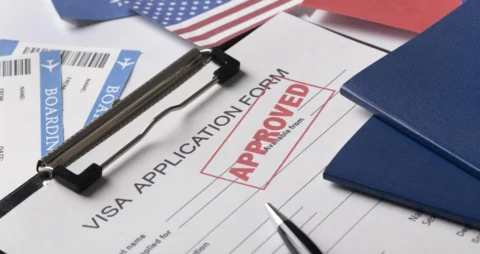Thailand is a vibrant and diverse country that has become an appealing destination for investors. With its booming economy and strategic location in Southeast Asia, it offers a wealth of opportunities. However, understanding the local culture is essential for success, especially when it comes to property investment. This article will explore various cultural factors in Thai property investment, helping you navigate the complexities of doing business in this unique environment.
Key Takeaways
- Respect for hierarchy is crucial in Thai business culture.
- Building personal relationships can lead to successful partnerships.
- Understanding local laws and regulations is vital for property investment.
- Cultural nuances, like saving face, can impact negotiations.
- Local expertise can help overcome challenges in the Thai market.
Understanding Thai Business Culture
Thailand offers a lot of opportunities for foreign investment, but it’s not just about the numbers. Getting to grips with Thai business culture is really important for building strong relationships and making sure things go smoothly. It’s about more than just turning a profit; it’s about understanding how people work, communicate, and build connections.
Respect for Hierarchy
Thai society places a high value on seniority and rank. This is reflected in business settings, where addressing people with the correct titles and showing respect to those in higher positions is essential. It’s common to greet people with a ‘wai’ (a slight bow with palms pressed together), especially when meeting someone for the first time or when addressing someone older or of higher status. Ignoring these customs can be seen as disrespectful and can damage relationships before they even begin. Understanding the hierarchy helps with communication and decision-making, making the workplace more efficient.
Building Relationships
In Thailand, business is often personal. It’s not just about closing deals; it’s about building trust and rapport. Personal connections are as important as business goals. Investing time in getting to know your colleagues and partners on a personal level can pay dividends in the long run. This might involve:
- Casual lunches or dinners
- Attending networking events
- Engaging in small talk before getting down to business
Building relationships takes time and effort, but it’s an investment that’s well worth making. Showing genuine interest in people and their culture will help you build strong, lasting partnerships.
Enjoyment at Work
Thais believe that work should be enjoyable, a concept known as ‘sanuk’. Creating a relaxed and fun work environment can boost morale and creativity. This doesn’t mean that work isn’t taken seriously, but rather that there’s an emphasis on creating a positive and supportive atmosphere. Encouraging positivity in meetings and daily interactions helps your team feel comfortable and motivated. A happy team is often a more productive team, so fostering a sense of ‘sanuk’ can be a smart business strategy.
Navigating Legal Frameworks
Alright, so you’re thinking about putting some money into Thailand? Good on you! But before you get too excited about those potential returns, let’s have a chat about the legal side of things. It’s not the most thrilling topic, I know, but trust me, getting this right from the start can save you a massive headache (and a lot of money) down the line. Thailand has its own way of doing things, and the legal system is no exception. It’s a blend of traditional Thai laws and international standards, which can be a bit tricky to get your head around.
Understanding Property Laws
Property laws in Thailand can be a bit of a maze, especially for foreigners. The key thing to remember is that foreigners generally can’t own land outright. There are, however, a few ways around this, such as leasing land for a long period (usually up to 30 years, with the possibility of renewal) or purchasing a condominium. Condominiums are a popular option, but there are rules about the proportion of foreign ownership within a building. If you’re looking to invest in property, working with a reputable Phuket real estate agent can help you navigate the process smoothly. Make sure you get proper legal advice before you sign anything. It’s also worth checking the title deeds carefully to make sure there aren’t any hidden surprises, like outstanding debts or disputes.
Compliance with Local Regulations
When it comes to doing business in Thailand, there’s a whole heap of local regulations you need to be aware of. We’re talking about everything from company registration and tax laws to labour regulations and environmental permits. It can feel like a never-ending list, but it’s important to get it right. One thing I’ve learned is that things aren’t always black and white. Sometimes, you’ll need to get creative and find solutions that work for everyone involved. And that’s where local expertise comes in handy.
Importance of Local Partnerships
Speaking of local expertise, having a good local partner can be a game-changer. They can help you understand the local customs, navigate the legal system, and build relationships with key stakeholders. Plus, they’ll have a good understanding of the local market, which can be invaluable when it comes to making investment decisions. Finding the right partner can take time, but it’s worth the effort. Look for someone who shares your values, has a good reputation, and has a proven track record of success.
It’s easy to get caught up in the excitement of a new investment opportunity, but don’t let that cloud your judgement. Take the time to do your research, get proper legal advice, and build strong relationships with local partners. It might seem like a lot of work, but it’ll pay off in the long run.
Investment Opportunities in Thailand
Thailand is really becoming a place people look at for investments, and it’s not hard to see why. It’s got a good spot in Southeast Asia, and the economy is growing. But like anywhere, there are things you need to know before you jump in.
Booming Tourism Sector
Thailand’s tourism is a big deal, pulling in loads of visitors every year. This makes investing in things like hotels and resorts a pretty good bet. The sector is always changing, so keep an eye on new trends and what tourists are after.
Manufacturing and Industry Growth
Thailand’s a key manufacturing hub, especially for cars and electronics. Putting money into factories or related businesses could pay off quite well. The government’s pushing for more tech and innovation, which could open up even more chances.
Real Estate Market Trends
The property market in Thailand, especially in Bangkok, has been doing pretty well. Investing in homes or commercial buildings has been a popular choice for foreign investors. Keep an eye on where things are growing and what people want. For example, you might see more condos being built near transport links or a growing demand for luxury properties. If you’re considering high-end properties, exploring Phuket villas for sale could be a great investment opportunity. Thailand’s economy is pretty diverse, but it’s also facing some changes. Things like global trade and new tech are having a big impact. Investors need to be ready to adapt and look for new chances as they come up.
Cultural Factors in Thai Property Investment
Investing in Thai property isn’t just about the numbers; it’s also about understanding the local culture. Getting this right can make or break a deal. It’s easy to overlook these things when you’re focused on ROI, but trust me, they matter.
Saving Face and Avoiding Conflict
In Thailand, maintaining harmony is super important. ‘Saving face’ (Kreng Jai) means avoiding embarrassment or shame for yourself and others. This affects how negotiations are conducted. Direct confrontation is a no-no. If there’s a problem, it’s better to address it indirectly and with respect. For example, instead of saying “This price is too high,” you might say, “Perhaps we can explore some different options?”
Respect for Traditions
Thailand has a rich history and deep-rooted traditions. Showing respect for these traditions can go a long way in building trust. This could mean being mindful of religious holidays, dressing appropriately when visiting temples, or even just being aware of the local customs. Ignoring these things can be seen as disrespectful and can damage relationships.
Indirect Communication Styles
Communication in Thailand is often indirect. Thais tend to avoid saying ‘no’ directly to avoid causing offence. This can be tricky for foreign investors who are used to more direct communication. You need to learn to read between the lines and pay attention to non-verbal cues. If someone is hesitant or vague, it might mean they disagree or are uncomfortable with something. Patience and careful observation are key.
Understanding these cultural nuances can significantly improve your chances of success in the Thai property market. It’s not just about the legal and financial aspects; it’s about building relationships and showing respect for the local culture.
Challenges for Foreign Investors
Thailand, while offering great opportunities, isn’t without its hurdles for those investing from abroad. It’s not always a walk in the park, and being aware of these challenges upfront can save a lot of headaches down the line.
Bureaucratic Hurdles
Let’s be honest, dealing with bureaucracy anywhere can be a pain, and Thailand is no exception. The paperwork can be extensive, and the processes aren’t always the most transparent. It’s worth noting that things can move at a different pace than you might be used to, so patience is key. Getting the right permits and licences can take time, and it’s easy to get bogged down in the details.
It’s a good idea to get some local help to navigate the system. Someone who knows the ropes can make a huge difference in speeding things up and avoiding unnecessary delays.
Market Competition
Thailand has some pretty competitive markets, especially in certain sectors. You’ll be up against established local players, as well as other international companies, all vying for a piece of the pie.
- Understanding the competitive landscape is vital.
- Identifying your unique selling point is crucial.
- Having a solid business plan is a must.
Cultural and Language Barriers
Cultural differences can sometimes lead to misunderstandings, and the language barrier can make communication tricky. It’s not just about translating words; it’s about understanding the nuances of Thai culture and business etiquette.
| Challenge | Impact |
|---|---|
| Language Barrier | Miscommunication, delays |
| Cultural Differences | Misunderstandings, relationship strains |
| Communication Style | Indirectness, potential for confusion |
It’s important to be respectful of local customs and traditions, and to invest in language training for your team. Building relationships based on trust and mutual understanding is essential for long-term success.
Strategies for Successful Investment
Conducting Due Diligence
Okay, so you’re thinking about putting some money into Thailand? Smart move, but don’t just jump in headfirst. Proper due diligence is absolutely vital. I mean, really dig around. Check out the market, the sector, everything. Understand the legal stuff, the potential problems, all of it. It’s like buying a used car – you wouldn’t drive it off the lot without a good look under the bonnet, would you?
Leveraging Local Expertise
Trying to go it alone in a new country is a recipe for headaches. Seriously, find some local experts. Lawyers, consultants, people who know the lay of the land. They can help you avoid all sorts of pitfalls, from cultural misunderstandings to regulatory nightmares. Think of it as hiring a guide for a tricky hike – they know the best paths and where the snakes are hiding.
Diversification of Investments
Don’t put all your eggs in one basket, as they say. Spread your investments around a bit. Different sectors, different types of assets. That way, if one thing goes south, you’re not completely wiped out. It’s just common sense, really. A balanced portfolio is a happy portfolio.
Investing in Thailand can be a great opportunity, but it’s important to remember that it’s not a get-rich-quick scheme. It takes time, effort, and a bit of luck. Be patient, be persistent, and don’t be afraid to ask for help. And remember to enjoy the process – after all, you’re investing in a pretty amazing country.
Building Trust and Credibility
In Thailand, trust isn’t just a nice-to-have; it’s the bedrock of any successful venture. It takes time and effort to cultivate, but the rewards are well worth it. Building trust and credibility involves demonstrating a genuine commitment to long-term relationships, respecting local customs, and actively engaging with the community. It’s about showing that you’re not just there to make a quick profit, but to build something lasting and mutually beneficial.
Long-term Relationship Building
Business in Thailand is often about who you know, not just what you know. It’s important to invest time in getting to know people on a personal level. This might mean:
- Attending social events and networking opportunities.
- Sharing meals and engaging in casual conversation.
- Showing a genuine interest in their lives and families.
Remember, Thais value personal connections. Building strong relationships takes time and patience, but it’s an investment that will pay dividends in the long run. Don’t rush the process; let trust develop naturally.
Engaging with Local Communities
Showing a commitment to the local community can significantly boost your credibility. This could involve:
- Supporting local charities or initiatives.
- Sponsoring community events.
- Creating employment opportunities for local residents.
By actively engaging with the community, you demonstrate that you’re not just there to extract value, but to contribute to the well-being of the area.
Participating in Cultural Events
Participating in Thai cultural events is a great way to show respect for local traditions and build rapport with the community. This could include:
- Attending religious ceremonies or festivals.
- Learning about Thai customs and etiquette.
- Showing an interest in Thai history and culture.
By participating in these events, you demonstrate that you value Thai culture and are committed to integrating into the local community.
Final Thoughts on Investing in Thailand
In conclusion, investing in Thailand can be a rewarding experience if you take the time to understand the local culture and business practises. Respect for hierarchy, building strong relationships, and embracing the local way of life are all key to making your venture successful. While there are challenges, like navigating regulations and potential language barriers, the opportunities in sectors like tourism, manufacturing, and technology are significant. So, if you’re thinking about diving into the Thai market, remember to approach it with an open mind and a willingness to learn. With the right mindset and local support, you can thrive in this vibrant economy.
Frequently Asked Questions
What are the key aspects of Thai business culture?
Thai business culture places great importance on respect, especially for those in senior positions. Building strong personal relationships is also essential, and work should be enjoyable.
How can I navigate the legal requirements for investing in Thailand?
It is important to understand local property laws and regulations. Working with local partners can help you comply with these requirements and make the process smoother.
What investment opportunities are available in Thailand?
Thailand offers many opportunities, especially in tourism, manufacturing, and real estate. The tourism sector is booming, and the real estate market is growing steadily.
What cultural factors should I consider when investing in property in Thailand?
Understanding the importance of saving face, respecting traditions, and using indirect communication can help you build better relationships and avoid misunderstandings.
What challenges might I face as a foreign investor in Thailand?
Bureaucratic hurdles, market competition, and language barriers can pose challenges. Being aware of these issues and preparing for them is crucial.
What strategies can help ensure my investment is successful in Thailand?
Conduct thorough research, collaborate with local experts, and consider diversifying your investments to reduce risk.








